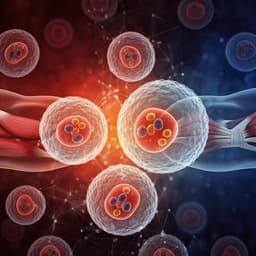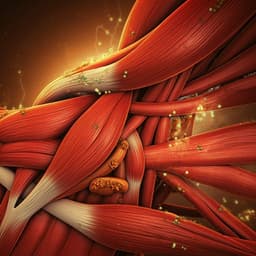
Space Sciences
Skeletal muscle gene expression dysregulation in long-term spaceflights and aging is clock-dependent
D. Malhan, M. Yalçin, et al.
This groundbreaking research by Deeksha Malhan, Müge Yalçin, Britt Schoenrock, Dieter Blottner, and Angela Relógio uncovers how circadian clock disruptions during long-term spaceflights and aging affect skeletal muscle gene expression. The study reveals critical insights into combating musculoskeletal atrophy in astronauts by maintaining circadian function through factors like exercise and fasting.
Related Publications
Explore these studies to deepen your understanding of the subject.







